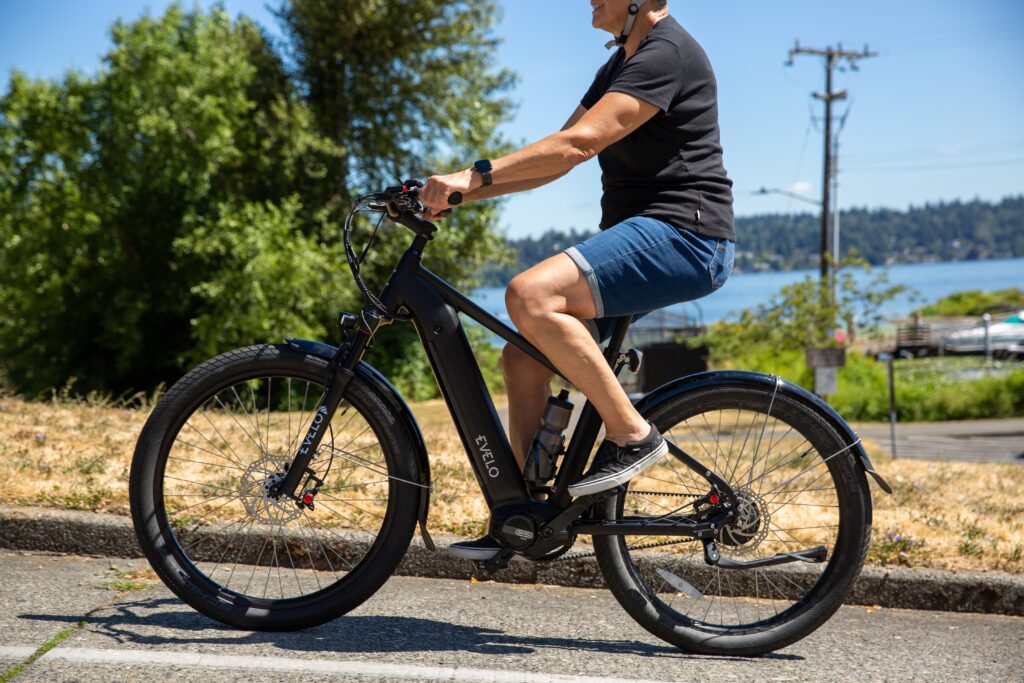From silent streets to zipping commuters, the once-unconventional sight of electric bicycles has now become an urban symphony, as these two-wheeled wonders surge in popularity, transforming the way we navigate our cities.
From silent streets to zipping commuters, the once-unconventional sight of electric bicycles has now become an urban symphony, as these two-wheeled wonders surge in popularity, transforming the way we navigate our cities. In recent years, the growing awareness of environmental concerns, coupled with the need for cost-effective and efficient transportation, has led to a remarkable rise in the adoption of electric bicycles as an alternative mode of getting around. This surge in popularity can be attributed to a myriad of factors, including the numerous benefits offered by electric bicycles, advancements in technology, and the challenges posed by urbanization and traffic congestion. As more individuals seek sustainable transportation options that combine convenience, health, and eco-friendliness, electric bicycles have emerged as a compelling solution, redefining the urban commute and revolutionizing the way we envision transportation in the modern age. Let’s explore the captivating world of electric bicycles and uncover the reasons behind their meteoric rise in popularity.
Benefits of Electric Bicycles
The growing popularity of electric bicycles can also be attributed to the multitude of benefits they offer. First and foremost, electric bicycles present a compelling solution to environmental concerns. With zero emissions and a significantly lower carbon footprint compared to conventional vehicles, e-bikes contribute to reducing air pollution and mitigating climate change.
By opting for electric bicycles, individuals actively participate in sustainable transportation, promoting cleaner and greener cities. Furthermore, electric bicycles provide a cost-effective alternative for daily commuting. With rising fuel prices and maintenance costs of cars, e-bikes offer significant savings on transportation expenses. Their efficient electric motors help to reduce reliance on fossil fuels and decrease the financial burden of owning and operating a traditional vehicle. Additionally, electric bicycles contribute to improved health and fitness.
While still providing pedal power, the electric assist feature allows riders to cover longer distances and conquer challenging terrains with ease. Commuting by e-bike promotes physical activity, strengthens cardiovascular health, and integrates exercise into daily routines, fostering a more active lifestyle.
Advancements in Electric Bicycle Technology
The surging popularity of electric bicycles can also be attributed to the rapid advancements in technology that have transformed these two-wheeled wonders into sophisticated modes of transportation. One notable advancement is the significant improvement in battery life and range. Modern electric bicycles are equipped with high-capacity lithium-ion batteries that offer extended riding distances, allowing riders to embark on longer journeys with confidence.
Moreover, advancements in motor power and efficiency have greatly enhanced the performance of electric bicycles. More powerful motors provide smooth and consistent assistance, enabling riders to tackle steep hills and challenging terrain effortlessly. These advancements have made electric bicycles a viable option for various purposes, including commuting and recreational riding. Another noteworthy development is the integration of smart features and connectivity.
Many electric bicycles now come equipped with intuitive displays, allowing riders to access important information such as speed, distance, and battery status. Additionally, some models offer connectivity options, enabling riders to connect their e-bikes with smartphones or other devices for enhanced navigation, fitness tracking, and even theft prevention. These technological advancements have further propelled the popularity of electric bicycles, making them not only efficient modes of transportation but also cutting-edge gadgets that cater to the tech-savvy generation.
Urbanization and Traffic Congestion
As urbanization continues to shape our cities, electric bicycles have emerged as a promising solution to combat the challenges posed by traffic congestion. In densely populated areas, where gridlocked roads and limited parking spaces are common, electric bicycles offer a practical and efficient alternative. With their compact size and agile nature, e-bikes can easily navigate through congested streets, bypassing traffic jams and reaching destinations in a timely manner. This not only saves time but also reduces frustration and stress associated with being stuck in traffic. Moreover, electric bicycles contribute to the overall improvement of urban mobility by occupying less space on the road and requiring minimal parking infrastructure.
Their maneuverability allows riders to take advantage of bike lanes, shared pathways, and shortcuts that are inaccessible to larger vehicles, further reducing congestion and promoting a more fluid flow of traffic. By incorporating electric bicycles into urban transportation systems, cities can address the challenges of traffic congestion and create a more sustainable and efficient commuting experience for their residents.
The E-Bike Commuting Revolution
The rise of electric bicycles has sparked a commuting revolution, offering individuals a reliable and time-saving alternative for their daily travel needs. As more people seek efficient and sustainable ways to commute, electric bicycles have emerged as a popular choice. With their electric assist feature, riders can effortlessly cover longer distances and arrive at their destinations faster than traditional bicycles. This makes e-bikes particularly appealing for daily commutes, where time is of the essence. Additionally, the advent of e-bike sharing programs has further transformed the urban transportation landscape. These programs provide convenient access to electric bicycles, allowing individuals to rent them for short-term use.
E-bike sharing initiatives have witnessed tremendous success in various cities around the world, offering a flexible and cost-effective transportation solution for residents and tourists alike. By integrating e-bikes into their transportation infrastructure, cities have experienced reduced traffic congestion, improved air quality, and increased mobility options. The e-bike sharing phenomenon has redefined the way we think about city transportation, promoting sustainability, accessibility, and convenience in urban environments.
In conclusion, the growing popularity of electric bicycles as an alternative mode of transportation is a testament to their numerous benefits, technological advancements, and their ability to address urban challenges. As more individuals embrace the convenience, sustainability, and efficiency of e-bikes, they are reshaping the way we navigate our cities.

